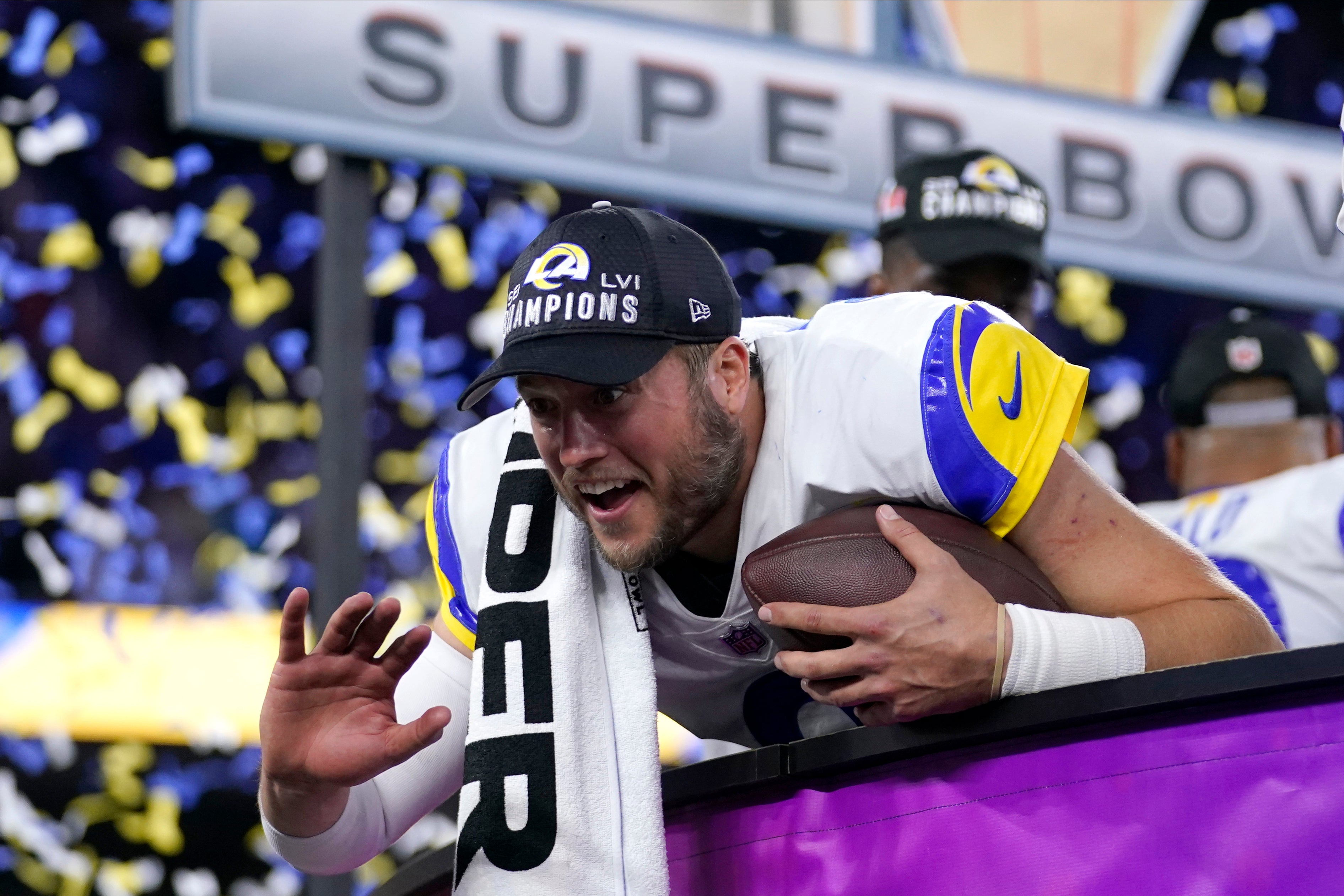The Super Bowl is the last properly unifying event in the US
From the epic commercials to the celebrity gossip to the flight paths of the private planes transporting NFL players, Super Bowl Sunday is an unusual time in the newsroom, writes Dave Maclean


After a weird Covid-curbed Super Bowl in 2021, America’s biggest sporting spectacle returned with full force this year – and it is jaw-dropping how powerful a news event it still is.
As a Brit, I find there isn’t really anything quite like it back home. There is no sporting event that the whole nation stops for. You could, perhaps, liken the impact to England playing a World Cup semi-final… every year.
But as a cultural event, it’s even bigger: ad slots are priced at $7m for 30 seconds; major stars appear in sprawling big-budget commercials; the half-time show nearly always marks an iconic moment in music; there’s drama in the stands among the celebrity guests. Even if you took away two rival teams competing for the Lombardi Cup, you’d have enough to report on for hours on end. It’s become so commonplace to watch the Super Bowl “for the commercials” that even the commercials talk about watching the Super Bowl for the commercials.
And as Super Bowls go, 2022’s didn’t disappoint.
The half-time show was more star-studded than any other, and was widely seen as a success. It had an injection of controversy with Eminem’s decision to take the knee, a gesture made in solidarity with Black Lives Matter that first became controversial when Colin Kaepernick did it a football game. Immediately, social media lit up with discussion: had the NFL sanctioned this, or known about it, or perhaps even tried to ban it? A few hours later, there was a restrained statement from the league about how it had been “aware” of what was going to happen – which of course only added to the intrigue.
Celebrity drama took place in the stands, most notably when Kanye West appeared on the Jumbotron and was seen (dressed in a full black mask) by the crowd for the first time. He was widely booed, presumably over his recent treatment of Kim Kardashian.
The game itself was a nail-biter, and even after the LA Rams beat the Cincinnati Bengals, controversies abounded. Eagled-eyed viewers of the plane-spotting site FlightRadar24 spotted the very un-environmentally friendly sight of dozens of private planes scarpering out of LA within five hours of the game’s conclusion. As one Twitter user put it wryly, “don’t forget to do your recycling!”
As an editor in a newsroom in 2022, it’s vanishingly rare for me to come across an event where everyone is on the same page. Despite a politically fragmented landscape and increasingly a culturally divided one, the Super Bowl feels like the final remaining bastion of togetherness. Whether you’re a TikTok-addicted teen or a grizzled dad with a favourite armchair, on Super Bowl Sunday there is only one topic of conversation.
And that’s probably why the NFL broadcasting is one of the few areas of old-school media that even the hot tech giants want to muscle in on. Back in the autumn, ESPN, Amazon and Apple were all reportedly in talks to buy the rights to the NFL’s Sunday Ticket app. It’s easy to see why: the NFL really is the best and most consistent content in America. Anyone who takes even a modicum of control over that can rely on unimpeded big bucks in the future.
Yours,
Dave Maclean
Indy100 editor (US)



Join our commenting forum
Join thought-provoking conversations, follow other Independent readers and see their replies
54Comments